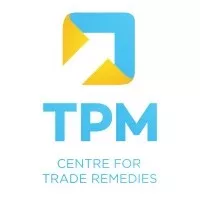- with readers working within the Property industries
- within Media, Telecoms, IT and Entertainment topic(s)
European Union - Countervailing duties on imports of Biodiesel from Indonesia
WT/DS618/R dated 22nd August 2025
The dispute arose pursuant to the findings of the European Commission, leading to imposition of definitive countervailing duties on imports of Biodiesel from Indonesia. In particular, the scheme under contention was Oil Palm Plantation Fund (OPPF) and imposition of export taxes on Crude Palm Oil (CPO).
Indonesia had challenged the following observations in the determination made by the European Commission -
- The European Commission noted that the Government of Indonesia (GOI) subsidizes the Indonesian biodiesel industry by providing grants to Indonesian biodiesel producers through the OPPF. Under the fund, OPPF management agency is entrusted to collect export levies on exports of CPO commodities. The fund collected is then disbursed to biodiesel producers. The purpose of disbursement of funds is to support the Government mandate to blend biodiesel with petroleum-based diesel for resale to the domestic economy. The European Commission considered this disbursement of funds is done through 'government or any public body within the territory of a member' and constitutes as 'grants.'
- The European Commission also noted that the GOI has implemented a policy imposing export taxes on CPO, which is the main raw material used to produce biodiesel in Indonesia. The export taxes was considered to be a market intervention by the GOI, artificially controlling the domestic CPO prices. Such intervention ensured that CPO is sold in the domestic market at lower prices.
After examining the issue, Panel found merit in the determination of the Commission that the GOI provides financial contribution through a government or public body in the form of grant under SCM Agreement by disbursing funds to biodiesel producers, which thereby confers benefits. The Panel also considered that the disbursement of funds under OPPF is de jure specific. Therefore, the Panel found that the program resulted in provision of a grant. Accordingly, it concluded that the European Commission has not acted inconsistently in determining the benefit calculation methodology and in determination of the countervailing duty amount.
As regards the imposition of export duty, the Panel noted that the European Commission reasoned that the program in place allowed biodiesel producers to have access to main raw material and cost at a price below the market price and actions of GOI contributed to income received by biodiesel producers. The European Commission considered that measures put in place allows biodiesel producers to realize higher profits. However, the Panel held that this amounted to assessment of effects of measures in the marketplace and did not constitute income support by GOI. Accordingly, the Panel found that the European Commission has acted inconsistently by determining that by maintaining different measure, like export taxes and levies, GOI has induced the domestic CPO producers to sell CPO locally and thus entrusted or directed private CPO suppliers to provide CPO to biodiesel producers in Indonesia for less than adequate remuneration. Therefore, the Panel concluded that the European Commission acted inconsistently by considering export tax and export levy resulted in conferment of a countervailable subsidy.
The content of this article is intended to provide a general guide to the subject matter. Specialist advice should be sought about your specific circumstances.


